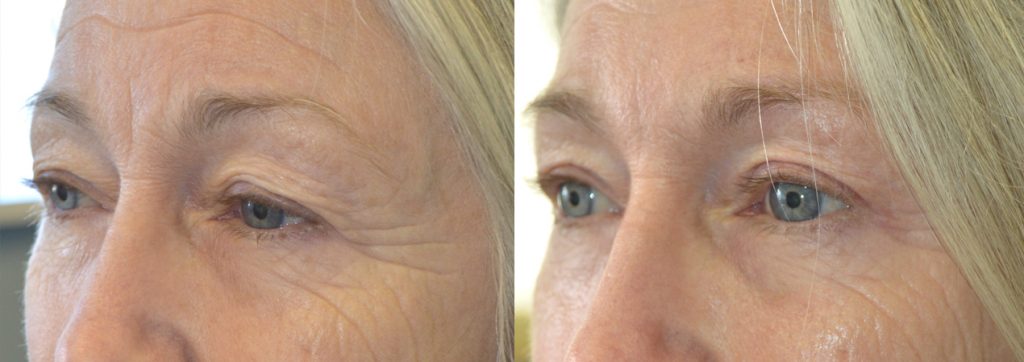When choosing a surgeon, whether for cosmetic or medical purposes, what’s most important is his or her training, skill, and experience. But what if you’re considering surgery for an area of the body in which two medical specialties overlap and, therefore, aren’t sure which surgeon is best for helping you hit your aesthetic or medical goals?

Los Angeles oculoplastic surgeon Dr. Mehryar (Ray) Taban and the staff at TabanMD realize that the similarities can cause confusion. Because there are notable differences between the two, let’s take a moment to outline the similarities and differences so that you’ll make the best choice.
First and Foremost
The surgeon that you ultimately choose should have the requisite skills and training, but your comfort level with him or her is important, as well. To learn which is right for you, consider the following questions:
-
- What is his or her specific field of training?
- How many years of experience?
- Are there photos of previous patients/procedures?
- Can you talk to previous patients by phone or in person?
- Does he or she understand and/or can address the various factors involved with your troubled eyelid, such as:
- Sagging eyelid or brow?
- Extra skin?
- Volume loss?
- Wrinkles?
- Sun damage?
- Does the surgeon take the time to answer questions and explain everything clearly?
What is a Facial Plastic Surgeon
An expert facial plastic surgeon can perform eyelid (blepharoplasty) procedures very well, but it is not necessarily his or her specialty. This surgeon can also perform procedures on other parts of the face, as well, such as the lips, cheeks, nose, and more.
According to the American Medical Association, facial plastic surgery is a sub-specialty of surgery, with 1-2 years spent learning general surgery and 3-4 years spent becoming an ear, nose, and throat expert with experience in head and neck surgery. A facial plastic surgeon receives training that emphasizes the anatomy, pathology, and/or facial surgery in general. The surgeon obtains training in cosmetic surgery, as well, throughout both his or her residency and fellowship schooling.
Specialized training in head and neck surgery allows a facial plastic surgeon to perform ear, nose, and throat surgery and qualifies her or him to perform procedures such as nose surgery (rhinoplasty), facelifts, and eyelid surgery (blepharoplasty). Finally, he or she must be meticulous and detailed, with an understanding of natural facial aesthetics.
What is an Oculoplastic Surgeon?
An oculoplastic surgeon is a board-certified ophthalmologist, which makes her or him qualified to do what a facial plastic surgeon cannot – examine your eyes for health issues to determine whether or not you actually need surgery. The surgeon in this field spends 1-2 years devoted solely to the eye area, such as the eye socket itself, the brows, and the eyelids.

Also called an ophthalmic plastic surgeon, an oculoplastic surgeon focuses on plastic and reconstructive surgery of the following:
- Eyelids
- Eyebrows
- Eye socket
- Tear ducts
An oculoplastic surgeon undergoes extensive surgical training for one of the most delicate parts of the body so that she or he can perform surgery to address conditions such as the following:
- Eyelid ptosis (droopy eyelid)
- Eyelid puffiness
- Under-eye bags or puffiness
- Eyelid skin cancer
- Blocked tear ducts
- Eyelid spasm
- Thyroid eye disease
As an expert in eyelid surgery, he or she can perform eyelid surgery, orbital biopsy, eyelid or orbital reconstruction, ptosis repair, and more. Furthermore, the eyelid surgeon can administer common cosmetic procedures like injections of Botox or dermal fillers, laser treatments, and even chemical peels.

So, Who Should Perform Your Eyelid Surgery?
It depends on the physician’s credentials, skills, experience, and previous results in addition to the type of specialist she or he is. Overall, however, because an oculoplastic surgeon has been trained in ophthalmology and plastic surgery, she or he will generally have the understanding of the delicate nature of the surgery as well as the fine touch needed to achieve your aesthetic goals. The finesse and precision needed to perform safely and effectively on such a delicate area of the body is usually learned more during a fellowship in ophthalmology and oculoplasty and can bring better results. Learn more about oculoplastics at Wikipedia.org.
To Find Out More, Contact Eyelid Surgery Expert Dr. Taban
If you’re thinking about undergoing an eyelid procedure for any reason but aren’t sure which type of surgeon can best help you reach your aesthetic goals, contact Dr. Taban and the oculoplastic surgery team at TabanMD for a consultation. Contact us online or call our Beverly Hills or our Santa Barbara locations.
